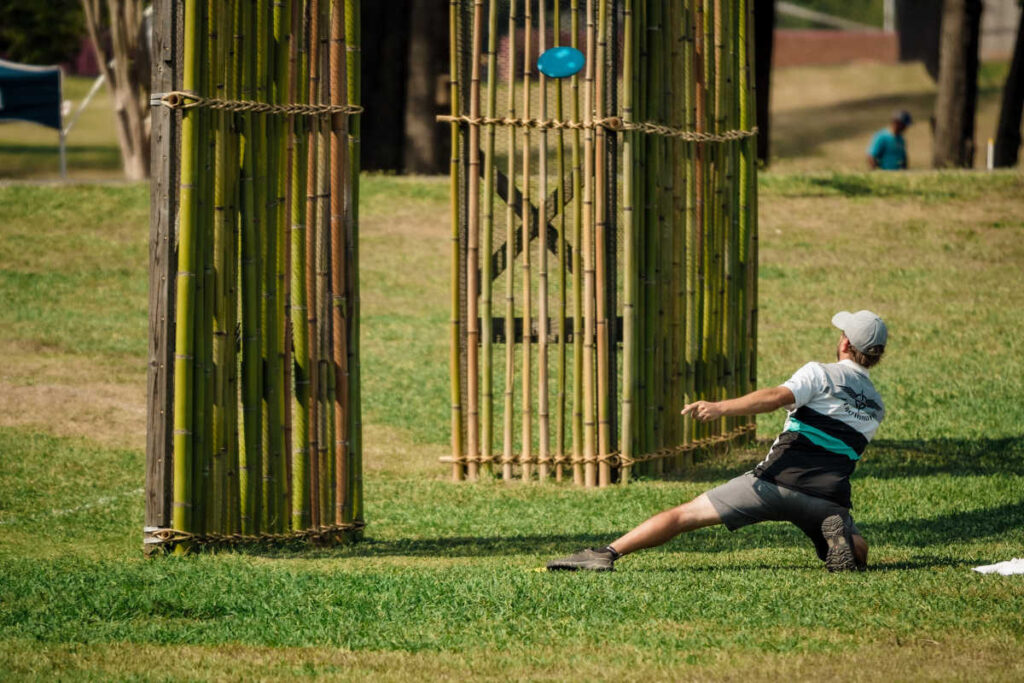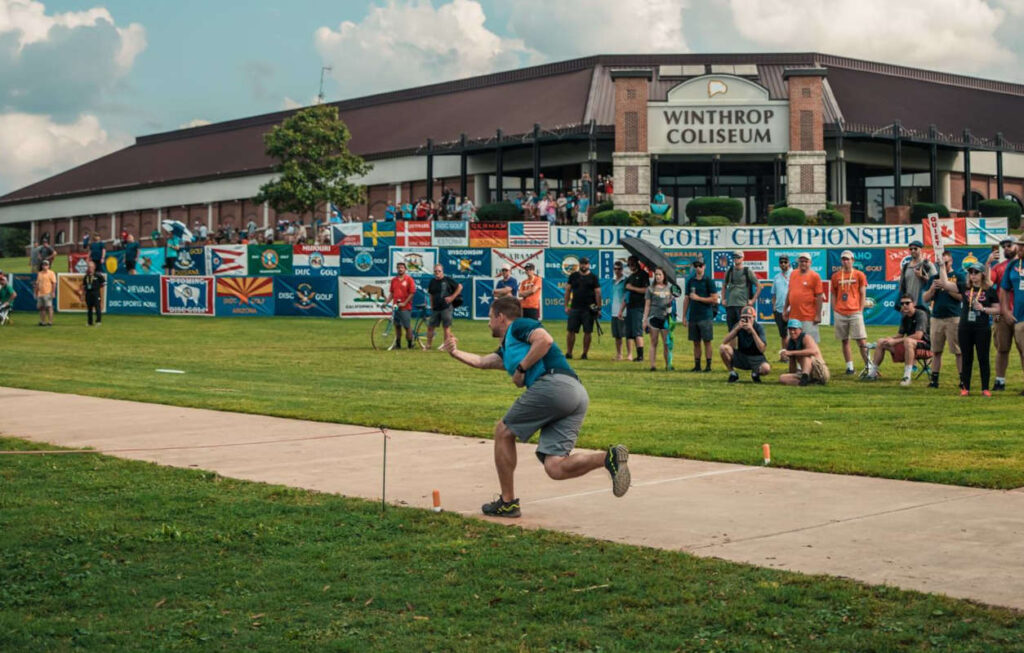Disc Golf Rules: 5 You Should Learn
Disc Golf Rules: Whether you love em’ or Hate em’, it’s your job to follow them as a disc golfer. Get to know five of the biggest changes regarding PDGA rules in this article. We’ll review:
Even if you have no plans on playing official Professional Disc Golf Association (PDGA) tournaments, most local clubs and casual tournaments still observe standard Frisbee golf rules as set by the PDGA. So take a quick look at these PDGA rulebook updates.
1. OB Relief – Semicircle of Trust
One of the most interesting disc golf rule changes made for this year relates to how you can take your relief from a disc that lands out of bounds. Previously, you were allowed one meter directly in from where you disc last crossed in bounds. You would take your relief perpendicular from the spot where it went out.
Now, if you are OB, you have the option to take your meter relief in any in-bounds direction—even if it puts you closer to the basket. Think of it as a semicircle from your OB lie. You can place your mini marker disc anywhere within that half-circle area and throw from there with a one-stroke penalty.
For more details on the new OB relief rules, click here. Also be sure to consult the PDGA Rules book.

2. Missed Mandatory – Oops!
Another big new rule this year has provided further clarity on what designates a missed mandatory (mando). Mandatories indicate a certain route a player must throw or suffer a penalty stroke. For 2022, tournament officials are to provide clear vertical and horizontal lines off of any mandatory object such as a tree, fence, light post, or building. The horizontal line is very important now as it extends off the mando object infinitely.
Any disc passing over that line at any point is considered to have missed the mando. It doesn’t matter which direction it comes from. It can fly around the wrong side of the object. It can roll across from the front.
Or, it can even successfully clear the proper side of the mando first before skipping or rolling back across the line. In any of these instances, the disc golfer has missed the mandatory.
Mando Stance: One other rule regarding mandatories relates to your legal stance when throwing around a mando (if you haven’t missed it yet). Previously, your lie and legal stance were determined by the location of the mando. Now, you can take your stance directly in relation to the basket. This may make your next throw harder or easier, depending on the angles.
For more details on new mandatory rules, click here.
3. Completing the Hole – Am I done yet?
In recent years, the Completing-the-Hole rule stated that your disc must come to rest inside the basket or chain assembly after having entered over the top of the cage. Now, your disc must still come to rest supported by the basket or chain assembly, but how it gets there is irrelevant.
Rule updates state that your disc can now fly through the front of the cage. It can even be stuck in the side of the cage without having traveled all the way through the structure. Some older baskets may allow the disc to fall in from the top support. All these putts now count as long as they end up in the chains, in the basket, or supported in any way by the cage.
Though few players are purposely trying to stick their discs into the side of the basket, this rule update does grant more leeway if it happens to you. For more details on new Completing-the-Hole rules, click here.

4. Player Eligibility/Prize Distribution – I win!
A few changes have been made this year that may affect players participating in PDGA-sanctioned disc golf events. First is player eligibility. If you are playing in a sanctioned B-tier tournament or higher (including A-tiers and elite series events), you must have a current PDGA membership and active number. You will not need a current membership to play in C-tiers, X-tiers or PDGA-sanctioned disc golf leagues.
If you are playing in a professional division of a PDGA event, you must have a PDGA number to receive any cash prizes. Your membership does not have to be active. If you do not have a PDGA number, you will only be eligible for trophy prizes.
Lastly, if you accept cash as a professional player in a PDGA tournament, you will no longer be able to compete in amateur divisions unless you still meet certain eligibility guidelines. These rules can get complicated, so be sure and ask your Tournament Director if you are unsure about which division to play.
5. Excessive Time – Can you Throw in 30 seconds or less?
- After the previous player has thrown; and
- After you have a reasonable amount of time to arrive at and determine the lie; and
- When it’s your turn in the throwing order; and
- During which the playing area is clear.
The last big rule change to understand is that you are not allowed to take “excessive time” on any throw when it is your turn and it is clear to throw. The PDGA essentially removed any verbiage relating to “free of distractions.” You simply have 30 seconds to throw and complete your shot once the following criteria are met:
So basically, once it is your turn to throw and the shot is clear, you have 30 seconds to get your shot off. It is up to your card mates to call an excessive time violation. The first one will be a warning. Subsequent violations can result in penalty strokes.
For more details on these last few rules and other 2022 PDGA disc golf rule changes you might want to know, click here.

1 comment